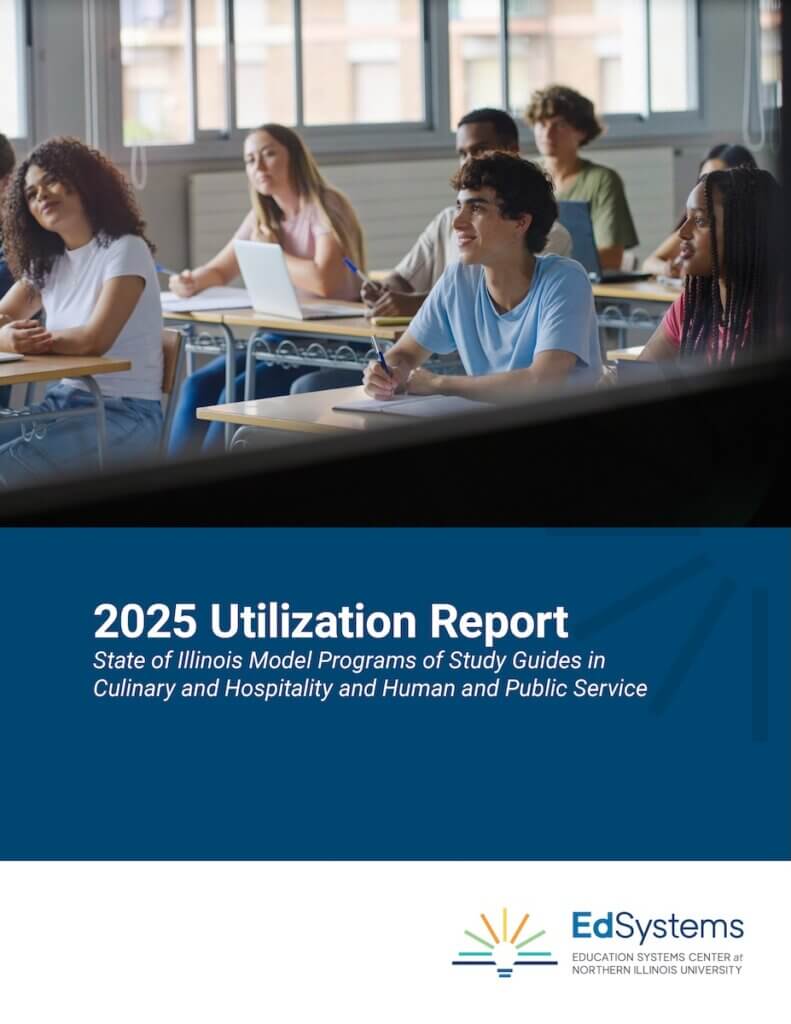Illinois students are increasingly seeking career-focused education that provides both college credit and work-related skills. Our recent study, 2025 Utilization Report: State of Illinois Model Programs of Study Guides in Culinary and Hospitality and Human and Public Service, examines how community colleges across the state are implementing dual credit programs in two high-demand sectors: culinary and hospitality, and human and public services. The study examined 48 program submissions from 25 community colleges across rural, suburban, and urban areas.
The findings reveal both promising progress and clear opportunities for improvement.
Successes
Many institutions are prioritizing dual credit courses that lead to industry certifications. In culinary programs, 71 percent of colleges offer food safety and sanitation courses that prepare students for ServSafe certification, which is a credential highly valued by employers. Similarly, programs are designed to mirror some first-semester college coursework, giving students a head start on their postsecondary education.
In human and public services, fire science programs are frequently represented, with 13 different programs submitted, reflecting the ongoing need for trained firefighters and emergency responders. Criminal justice and law enforcement programs are also well-represented with 8 submissions, indicating interest in these public safety careers.
Areas for Improvement
The study identified significant gaps in alignment with state guidance. Many colleges were unaware of the State of Illinois Model Programs of Study Guides, the comprehensive resources designed to help schools create coherent career pathways by industry sector. Some institutions focused primarily on general education courses rather than career-specific content that would better prepare students for their chosen fields.
The challenge is particularly evident in human services programs, where specialized courses such as Introduction to Social Work and Social Problems in Human Services were rarely offered as dual credit, often due to instructor credentialing requirements.
Recommendations
EdSystems’ recommendations based on its analysis center on two key strategies:
- Strengthen Regional Partnerships: Community colleges and high schools need to work together more closely to design course sequences that truly prepare students for both college success and career entry. This means moving beyond ad hoc dual credit offerings to intentional programs of study and pathway design.
- Invest in Faculty Development: Many faculty members need a better understanding of how to select dual credit courses that accelerate students within a pathway program. Professional development should focus on using state resources like the Model Programs of Study Guides and understanding local workforce needs.
Why This Matters
For students, well-designed career pathways can mean the difference between wandering through college unsure of their direction and having a clear path to meaningful employment. For employers, these programs help ensure a pipeline of qualified workers with relevant skills and credentials.
The study shows that while Illinois has built a strong foundation for career-focused dual credit programs, strategic improvements in collaboration could significantly enhance outcomes for students.
To learn more, explore additional utilization reports and the ten State of Illinois Model Programs of Study Guides at edsystemsniu.org/guides.




